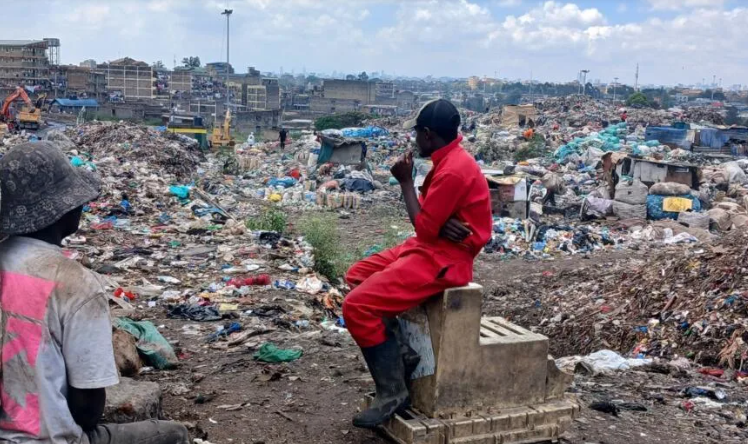The fifth session of international negotiations for a global treaty on plastic begins on November 25, 2024, in Busan, South Korea. This presents an opportunity to discuss the role of waste pickers in recycling. These men and women who, every day, collect plastic waste in landfills. According to the United Nations, there are 20 million of them worldwide. In Kenya, 8,000 work in the Dandora landfill, located in the suburbs of Nairobi. Report.
With our correspondent in Nairobi, Gaëlle Laleix
The Dandora landfill, near Kenya’s capital, spans 20 hectares. Everything is thrown away here: food, glass, metal, plastic, and chemicals. And to make space, they burn it all.
Daro Cassa Atieno comes here every day to collect plastic. « I sometimes manage to earn 200 shillings, 1.5 euros, » she says. « It helps me at home. I am often sick, but that’s normal here. When they burn the waste and there’s a lot of smoke, my chest hurts, I get a fever, and I have headaches.
« I will collect waste forever »
At Dandora, the landfill is sometimes the only horizon. Joyce Wangari has been collecting waste since she was 8 years old. She started when her mother, a waste picker before her, became ill: « Her lungs gave up. Even her throat… She couldn’t speak anymore. I couldn’t finish school. I don’t see where I can go. I will collect waste forever. »
According to the United Nations, 60% of recycling worldwide is done by waste pickers. To have their role recognized, the Nairobi Recyclable Waste Association was founded five years ago.
Solomon Njoroge, its president, states: « When we talk about a just ecological transition, we must consider waste pickers. We want them to be recognized as key players in recycling, to be included in political decisions, and to have the opportunity to speak. »
According to the UN, less than 10% of plastic waste globally is recycled.
Source: RFI




